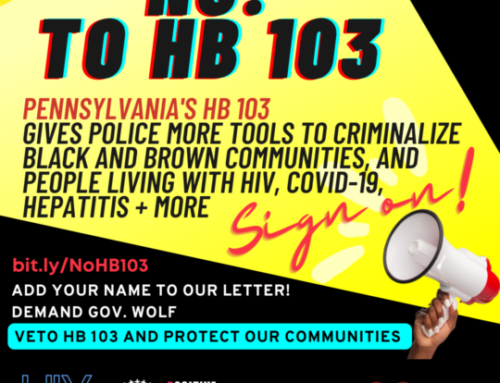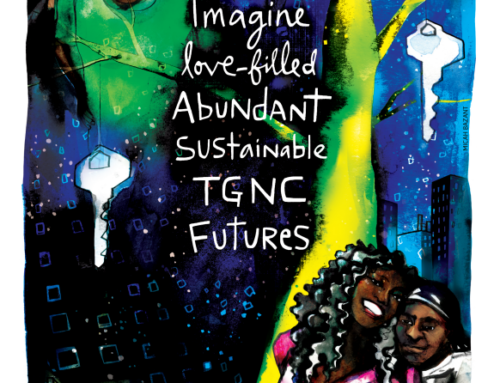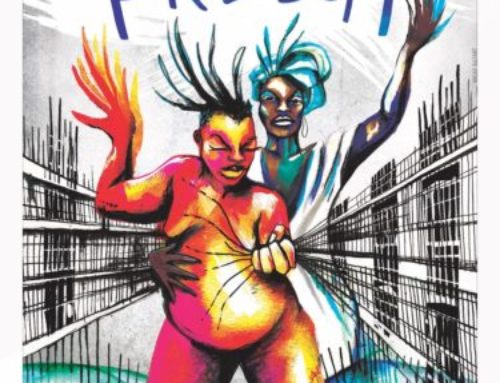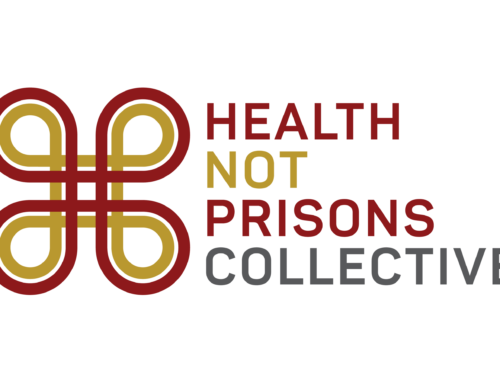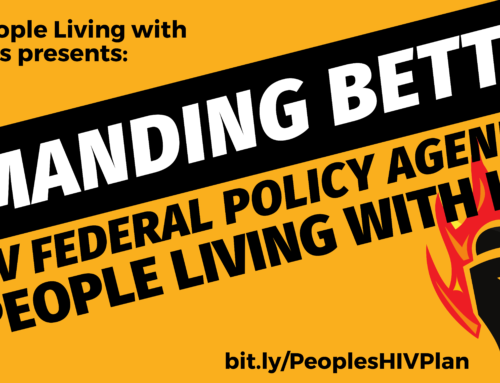**FOR IMMEDIATE RELEASE**
Contact: Cecilia Chung +1.415.902.0216, cecilia@transgenderlawcenter.org
Naina Khanna +1.510.681.1169, nkhanna@pwn-usa.org
George Ayala +1.213.268.1777, gayala@mpactglobal.org
BAY AREA, U.S. AND GLOBAL HUMAN RIGHTS ADVOCATES DEMAND 2020 INTERNATIONAL AIDS CONFERENCE BE REMOVED FROM U.S.
They cite danger for potential participants and human rights violations in the U.S. under Trump administration
Amsterdam, Netherlands, July 23: Terrorizing immigrants. Family separations. Detentions. Targeting sex workers and LGBTQ communities. Global Gag Rule. War on people who use drugs. Closed borders. The wall. Police brutality. Racist violence grounded in white supremacy. This is Trump’s U.S.A.
Despite this hostile environment, this March, the International AIDS Society (IAS) announced San Francisco as the host city for the next International AIDS Conference, which will take place in 2020. Overnight, 11 global key population networks and over 60 U.S.-based human rights organizations, including all the U.S. based national networks of people living with HIV, heavily criticized and opposed the decision, calling for IAS to immediately announce their decision to relocate the conference.
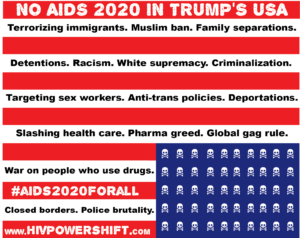 “The decision to bring the International AIDS Conference to the U.S.A in 2020 reflects a gross disregard to the expressed requests of gay men, people who use drugs, and sex workers that the conference be hosted in a country where our participation is possible. Further, the choice of the Bay Area, literally one of the most expensive places in the world, underscores a growing divide in the AIDS movement between the public health elite and community advocates,” said George Ayala, executive director of MPACT Global Action for Gay Men’s Health and Rights, based in Oakland, California.
“The decision to bring the International AIDS Conference to the U.S.A in 2020 reflects a gross disregard to the expressed requests of gay men, people who use drugs, and sex workers that the conference be hosted in a country where our participation is possible. Further, the choice of the Bay Area, literally one of the most expensive places in the world, underscores a growing divide in the AIDS movement between the public health elite and community advocates,” said George Ayala, executive director of MPACT Global Action for Gay Men’s Health and Rights, based in Oakland, California.
The U.S. last hosted an International AIDS Conference in 2012. At that time, although the U.S. political climate was more supportive of human rights overall, global networks of sex workers were forced to organize an alternate conference in Kolkata and networks people who use drugs organized an alternate conference in Kiev as a result of visa restrictions that prohibit sex workers from entering the United States, though many advocates had attempted to get these restrictions waived for the conference.
“Across the U.S., large numbers of sex workers who have lost online advertising platforms due to the passage of FOSTA/SESTA are working the streets, leading to plummeting market prices, unsafe sex work practices, and increased criminal legal system involvement. This is not a safe environment to ask our global allies to enter into, even if they could get in,” says Magali, president of the Sex Workers Outreach Project U.S.A.
Despite heroic and powerful efforts among and across targeted communities, and from grassroots to powerful elites, to stop the attacks and mitigate the damage from them, advocates point out that the U.S. is currently unsafe even for immigrants, people of color, and LGTBQ communities already living in the U.S. Further, they note that securing visas to the United States will be gravely challenging for communities most impacted by the global HIV epidemic as a result of the travel bans on current and former sex workers, people who use drugs, several Muslim countries, and an emerging track record of detentions of human rights activists at U.S. borders and denials of entry visas for activists from the Global South despite full sponsorship.
“Long-standing biases, acts of discrimination and human rights violations against people of color, immigrants, trans people, LGBTQ people, people with disabilities and other key populations are rapidly escalating. Perhaps IAS does not understand that nothing – including the rule of law, international agreements, political action, or standards of civility – is currently curtailing the escalation of federal or vigilante violence against our communities,” said Larry Walker, CEO of Thrive SS, an Atlanta, Georgia-based network of Black gay men living with HIV.
“From fear-based visa policies and immigration raids to direct attacks on the safety of sex workers, from transphobia to the resurgence of white supremacy – the United States of America is anything but united,” says Cecilia Chung of Transgender Law Center, an Oakland, California-based legal advocacy organization for people of transgender experience. “Hosting AIDS 2020 in California, which has already become a target of the Trump administration, goes against the International AIDS Society’s own values of being inclusive, human-rights focused, and evidence-based. A U.S.-based conference during a politicized election year will be inaccessible and will expose our communities to grave harm.”
“No act of goodwill from the IAS, its network, or even individual members of U.S. Congress can ensure visa approvals. Nor can they prevent detention, interrogation, intimidation, or exposure to violence and harm once in the U.S.,” said Naina Khanna, executive director of Positive Women’s Network-USA, an Oakland, CA-based national network of women living with HIV. “We have a statement which organizations and individuals are signing onto in droves available at bit.ly/AIDS2020SignOn. We are asking IAS to meet with concerned members of civil society here in Amsterdam so we can partner with them to help move this important biannual conference so it can be truly accessible for communities most affected by HIV.”
Bay Area and global advocates will be hosting multiple events and actions during the 2018 International AIDS Conference in Amsterdam. Follow #AIDS2020ForAll on twitter and visit AIDS2020ForAll.org for further information.
###



